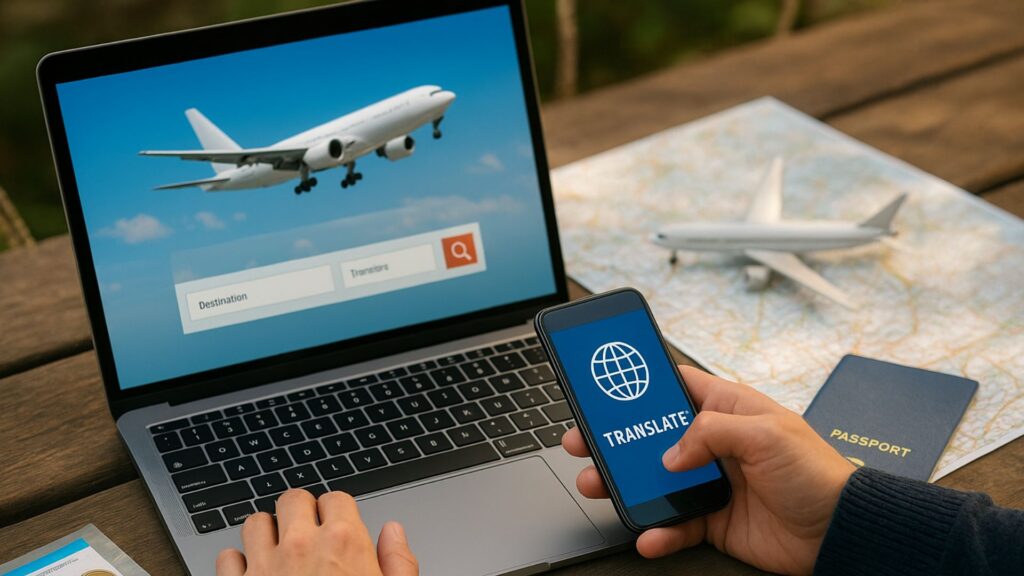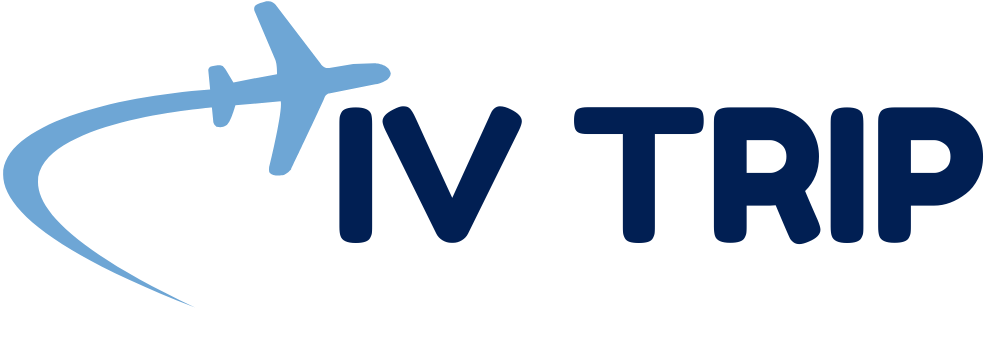Multi Currency Payment Processing & Language in Travel Tech

Multi Currency Payment Processing and Multi-Language Support: Why It Matters in Travel Tech
In today’s globalized world, travel is borderless. A traveler from Tokyo may be browsing your travel portal in Japanese yen, while another in Dhaka wants to pay in Bangladeshi Taka and read in Bengali. Meanwhile, a tourist in Dubai expects Arabic language support and the ability to pay in AED.
This is where multi currency payment processing and multi-language services redefine the digital travel experience. No traveler wants the frustration of guessing foreign exchange rates or navigating unfamiliar languages during booking. Instead, they expect seamless localization—prices in their home currency, communication in their language, and transparent transactions.
For travel tech companies, meeting these expectations isn’t just a competitive advantage—it’s a necessity. In this comprehensive guide, we’ll dive deep into why these features matter, how agencies in Bangladesh and worldwide can implement them, and what role advanced SaaS solutions like IV Trip by Implevista play in enabling smooth global travel operations.
The Global Reach of Travel Agencies and Localization
Travel is inherently international: business travelers visit foreign countries and tourists roam the globe. This means travel agencies must market to people who speak different languages and use different currencies. A multilingual, multicurrency travel tech platform removes those barriers. For example, studies in hospitality show that providing information “in a guest’s home currency” and native language “provides clarity, prevents misunderstanding about exchange rates, and enhances confidence”. Likewise, tour operators note that multilingual booking systems enable them to extend services “beyond borders, attracting a global clientele. Customers feel more at ease booking in their native language, which can significantly boost conversion rates”.
-
Language Accessibility:
Offering a website or app in multiple languages makes global customers comfortable. It “reduces anxiety” and “enhances satisfaction” when users understand everything clearly. Travel agents and partners from other countries can also use the system in their own tongue, speeding up sales and support.
-
Currency Familiarity:
Seeing prices in a familiar currency (e.g., euros for Europeans or taka for Bangladeshi) builds trust. It avoids confusion over exchange rates and hidden fees, which lowers cart abandonment. For example, IV Trip’s B2B portal lets agents choose local currencies and localized pricing. giving businesses an edge in diverse markets.
-
Market Expansion:
By integrating multi-language services and payment in various currencies, agencies can easily target new markets. As one industry report notes, multilingual/multicurrency capabilities are “a foundation of geographically scalable business” that build positive brand impressions across regions.
In summary, travel tech companies that invest in localization are better positioned worldwide. As global search engine guidelines suggest, using distinct language versions (often via hreflang tags and separate URLs) helps international travelers find the correct page. In practice, implementing multi-language and multi-currency options on your site signals to both customers and search engines that you’re serving an international audience, which can boost traffic and bookings.

Why Multi Currency Payment Processing is a Game Changer
At the heart of international travel e-commerce is multi currency payment processing. This means allowing customers to pay in their own currency while the business receives settlement in its chosen currency. A robust travel platform integrates with global payment gateways so that when a traveler in London pays in British Pounds, the agency can still receive funds in, say, US Dollars or Bangladeshi Taka. Payment providers confirm that multi-currency accounts “enable seamless cross-border payments so you can price in a foreign currency and get paid in one of the available settlement currencies, helping to reduce the complexity of managing cross-border e-commerce”.
Key benefits of multi currency payment processing for travel agencies include:
-
Wider Market Reach:
Accepting payments in multiple currencies removes a major barrier for international customers. Someone booking a tour package is far more likely to complete the purchase if they see prices and pay in their native currency.
-
Higher Conversions & Loyalty:
Studies show that localized pricing can lift conversion rates by up to 70%. Customers trust prices they understand and feel the process is fair when they don’t incur unexpected foreign exchange fees. They are also more likely to become repeat clients or refer friends, especially in the travel sector, where trust is key.
-
Reduced Abandonment:
Currency confusion is a known checkout killer. A multi-currency system “prevents misunderstanding about exchange rates” and thus significantly reduces cart abandonment.
-
Operational Efficiency:
With built-in multi-currency support, travel software automates currency conversion. The system pulls live exchange rates, displays equivalent prices instantly, and records both original and converted amounts for reporting. This frees staff from manual FX calculations and reconciliation.
-
Streamlined Commissions and Payouts:
Travel agencies often pay suppliers and collect commissions from all over the world. Modern travel software automates these multi-currency flows. For example, the IV Trip system “supports multi-currency transactions, converting supplier payouts from their original currency (e.g., USD, EUR, GBP) into the agency’s preferred one”. This ensures agents get accurate commission reports in local currency without manual effort.
-
Competitive Edge:
Many older platforms lack out-of-the-box multi-currency support. Even big e-commerce systems like Shopify “may lack certain advanced features like multi-language support” without expensive add-ons. In travel, failing to offer local currency payment can alienate customers. Travel tech companies that provide native multi-currency capabilities (like IV Trip or global platforms such as Traveltek) stand out to agencies seeking a global solution.
Multi-Language Services: Speak Your Customer’s Language
-
The UX Advantage
Research shows that over 70% of consumers prefer to buy in their native language. A French traveler exploring Paris packages will connect more if the descriptions, reviews, and booking flow are in French. Likewise, Bangladeshi users appreciate Bengali options when booking through a Dhaka-based OTA.
Multi language services are no longer an afterthought—they are part of UX design.
-
SEO and Search Visibility
Localized content doesn’t just engage—it ranks. Google favors websites with region-specific content. A multilingual travel site targeting “cheap flights to Dubai” in Arabic is more likely to appear in Arabic search queries.
This SEO advantage brings in new customers at a lower acquisition cost.
-
Brand Credibility Across Borders
When an agency invests in multi language services, it signals global readiness and respect for cultural diversity. Travelers feel valued, which increases repeat business and word-of-mouth referrals.
-
Localized Marketing Power
Beyond websites, multilingual support enhances campaigns—emails, SMS notifications, and push alerts all resonate more when crafted in the user’s language. This strengthens loyalty and customer lifetime value.

How Travel Tech Companies Implement These Features
Modern travel tech companies rely on multiple strategies to deliver multi-currency and multi-language capabilities:
- Native SaaS Platforms with Built-In Features: Solutions like IV Trip offer multi currency payment processing and multi language services as default features. This saves agencies from custom development while ensuring compliance with local and international payment gateways.
- API Integrations for Global Access: Third-party APIs like Mystifly or Amadeus provide airlines, hotels, and payments with multi-currency support. IV Trip integrates these APIs to ensure Bangladeshi agencies can access global content while localizing it for clients.
- GDS Integrations with Language Flexibility: Global distribution systems like Sabre and Travelport feed inventory, while platforms like IV Trip add localized presentation—currency, language, and checkout flexibility.
- Hybrid Customization: Agencies may combine SaaS with custom add-ons. Implevista specializes in tailored solutions, where extra features like rare currency handling or niche language support can be developed.
Benefits for Travel Agencies (Especially in Bangladesh)
Travel tech companies that incorporate multi-currency and multi-language into their products unlock huge value for their clients. Consider some real-world examples:
- TourCMS (global tours platform): Even off-the-shelf solutions recognize these needs. TourCMS lists “multi-language support” as a key feature out of the box.
- Traveltek (enterprise booking): Traveltek advertises “built-in PCI-compliant payments (multi-currency)” to handle global transactions.
- White-label portals: Guides on B2B portals advise that any white-label travel portal “should support multiple currencies and languages,” so agents can book in the customer’s currency and language
- Custom solutions (e.g., IV Trip): IV Trip’s design specifically addresses local markets. In Bangladesh, IV Trip’s advantage is its “local focus (Bangladeshi currency, language options, regional support)”. That is a powerful selling point for agencies in that region.
The net effect for agencies is clear: integrating these features makes a system truly global. A travel tech company gains trust and market share by advertising “multi currency payment processing” and “multi-language services.” In fact, customers now expect it. Our own IV Trip travel management system features built-in multi-language and multi-currency support, so travel agencies can expand internationally without juggling multiple tools.
In practical terms, travel tech companies often bundle these capabilities with other essential features. For example, a modern travel booking platform will integrate with multiple payment gateways (to handle currencies) and include translation/localization tools (to manage languages) . Agencies avoid friction by using one system rather than stitching together external tools for every language or currency. This unified approach is why many travel tech buyers choose platforms like IV Trip over ad-hoc solutions. As one analysis notes, travel software should cover all core needs – “bookings, CRM, automation, analytics” – and include integrations for payments and languages. By doing so, agencies are freed to focus on customers, not tech issues.
Advantages of Multi-Currency and Multi-Language Support in Travel Tech
- Customer-Centric Approach: Personalized journeys in local currencies and languages.
- Revenue Growth: More conversions and broader market reach.
- Operational Efficiency: Automated accounting, reduced errors.
- Competitive Differentiation: Stand out in the saturated OTA market.
- Global Compliance: Aligns with international payment regulations.
Maintenance & Care for Agencies Implementing These Features
- Update language packs frequently for accuracy.
- Ensure payment gateways support FX updates.
- Test checkout flows in multiple currencies.
- Regularly audit translated content for SEO optimization.
Environmental & Safety Benefits
While not “environmental” in the traditional sense, multi-currency and multi-language features reduce digital waste:
- Fewer abandoned bookings → higher platform efficiency.
- Streamlined systems → lower manual work → reduced operational strain.
- Better localization → fewer disputes and refunds.

Why Choose IV Trip for Multi-Currency & Multi Language Support?
IV Trip stands apart because it combines local expertise in Bangladesh with global travel technology features. Unlike generic platforms, IV Trip is designed with:
- Multi currency payment processing built in (BDT, USD, AED, SAR, EUR).
- Multi-language services, supporting Bengali, English, Arabic, and more.
- UL/FM-style global compliance for payments and operations.
- End-to-end support from Implevista, including training and integration.
By choosing IV Trip, agencies are not simply buying software—they’re gaining a partner for growth, with global credibility and local trust.
Frequently Asked Questions (FAQ)
- What is multi-currency payment processing?
Multi currency payment processing lets travel agencies accept and process bookings in different currencies. Customers can pay in their local currency (USD, EUR, BDT, etc.), while the agency receives settlement in its preferred currency. This usually requires integrating with global payment gateways (Stripe, PayPal, etc.) and live FX rate services. The benefit is less checkout friction, accurate settlement, and access to a wider global market.
- Why is multi-currency support important for travel agencies?
It’s crucial because travel is global. Accepting multiple currencies through multi currency payment processing means international travelers see familiar prices and can pay easily. This significantly increases booking conversions and reduces cart abandonment. According to industry data, offering local currency pricing can boost conversion rates by up to 70% compared to non-localized sites. It also streamlines accounting since commissions and supplier payments can be handled automatically in each currency.
- How do multilingual services benefit travel booking?
Multi-language support ensures users can navigate the site in their native language. This improves user experience, trust, and reduces errors. Customers feel more comfortable booking in a language they understand. Travel industry experts report that multilingual platforms, especially when combined with multi currency payment processing, dramatically increase international bookings. For agents and staff, a multilingual system also means easier training and fewer misunderstandings.
- What do travel tech companies consider when adding multi-language and currency features?
They focus on internationalization frameworks and global payment integration. For languages, they build UI and content management systems that switch text and formats dynamically. For currencies, they connect to gateways that support secure multi currency payment processing with real-time exchange rates. Security (PCI compliance) and performance are also key: a seamless user experience with fast currency conversions and auto-translated content is the goal.
- Do most travel platforms support multi-currency and language?
Top travel technology platforms do. For example, global booking systems like TourCMS include multi-language support out-of-the-box, and enterprise solutions like Traveltek offer built-in multi currency payment processing. However, some simpler platforms (or DIY booking engines) may lack these features without custom development. It’s important to choose a platform (like IV Trip) that has these capabilities if you serve international markets.
- How can adding these features improve my SEO and marketing?
Multi-language sites rank in search results for those languages and regions. Google recommends using separate language versions (with hreflang tags) so travelers find the right page. This means more organic traffic from countries you target. Also, offering payments through multi currency payment processing can improve customer satisfaction, leading to better reviews and word-of-mouth referrals online.
- Is it expensive to implement multi-currency and multi-language features?
Costs vary. Some travel software includes them natively (no extra cost beyond licensing). Others may require plugins or custom work. However, outsourcing payments to gateways (Stripe, PayPal) often only incurs standard transaction fees. Many translation services use modular pricing. The return on investment tends to be high: the boost in bookings and customer loyalty that comes with multi currency payment processing and multilingual UX usually outweighs the implementation cost.
- Can small travel agencies benefit from these features?
Absolutely. Even local agencies looking to serve foreigners (or partner with global OTAs) will benefit. Small agencies often deal with multiple currencies and language customers as well. Automating these processes through scalable cloud solutions with built-in multi currency payment processing saves time and helps small teams appear more professional. Many SaaS travel software products are designed so both small and large agencies can benefit.
- Which payment methods support multi-currency bookings?
Common methods include international credit/debit cards (Visa, MasterCard, Amex), and gateways like Stripe or PayPal, which automatically convert currencies. In travel, region-specific methods also help (e.g. Alipay in China, bKash/Rocket in Bangladesh). The key is to integrate with gateways that provide seamless multi currency payment processing at checkout. Customers choose their preferred payment method/currency on the booking form, and the software processes it instantly.
- How does multi-currency support handle exchange rates?
Modern travel systems use real-time exchange rate APIs or provider rates at the moment of payment. When a customer books, the software converts the local price into the chosen currency using up-to-date rates. Both the original and converted amounts are recorded for accuracy. IV Trip, for example, uses advanced multi currency payment processing that applies updated exchange rates and records both the original and converted amounts for transparent reporting — so you always know exactly how much you paid and earned in each currency.
The travel industry thrives on connection—and nothing connects better than speaking your customer’s language and pricing in their home currency. For travel tech companies, especially in Bangladesh, adopting multi currency payment processing and multi language services isn’t optional—it’s the path to global growth.
Ready to expand your travel business worldwide?
- Explore IV Trip Features
- Compare IV Trip vs Other Software
- Contact Implevista Today
- Subscribe to Our Blog

